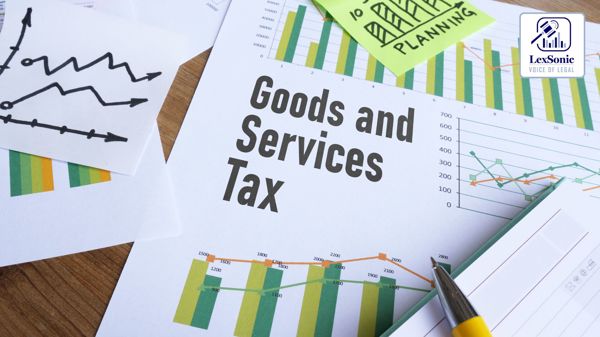In a significant ruling of Blossom Industries Limited, Nani Daman v/s Union of India, Through the Hon’ble Ministry of Finance, New Delhi & Others concerning Goods and Services Tax (GST) compliance, the Court addressed the challenge posed by a show cause notice issued by the Directorate General of Goods & Services Tax Intelligence (DGGI) to a petitioner, a beer manufacturer, for alleged GST evasion. The petitioner, in this case, had entered into a licensing agreement for the manufacture and sale of beer with United Breweries Limited (UBL). The petitioner contested the show cause notice, claiming that it was without jurisdiction and violated prior advance rulings. However, the Court ultimately dismissed the petition, reinforcing the principle that judicial intervention is not warranted at the stage of a show cause notice unless certain exceptional conditions are met.
Factual Background:
The petitioner's challenge stemmed from a show cause notice dated January 30, 2023, issued by the Surat Zonal Unit of DGGI. The notice accused the petitioner of evading GST by misclassifying products and failing to pay the appropriate GST on production overhead charges. The central issue revolved around the production of beer for two different brand owners, M/s AB InBev Ltd. (producing Haywards 5000) and UBL (producing Kingfisher), and the alleged discrepancies in the GST payments made for these brands.

The petitioner contended that the show cause notice was beyond the jurisdiction of the Central Government, as alcoholic beverages for human consumption fall under the exclusive domain of state taxation under the Constitution. Further, the petitioner referred to an Advance Ruling from the Authority for Advance Ruling (AAR), which held that the petitioner was not liable to pay GST on certain amounts retained by bottlers. The petitioner argued that this ruling should bind the authorities in its case as well, thereby making the issuance of the show cause notice ultra vires.
The Court’s Ruling:
The Court observed that the show cause notice was not, on its face, a demand for GST on alcoholic liquor for human consumption, a category exempt from CGST and IGST under both the CGST Act and the Constitution. Instead, the notice pertained to the classification of certain by-products (spent grain) and production overhead charges, for which GST was allegedly being evaded.
The Court emphasized that it could not interfere with the show cause notice at this stage since the notice was based on an ongoing factual investigation. The Court clarified that the investigation into the specifics of the petitioner’s transactions with UBL, including the alleged misclassification of products and the non-payment of GST on production overheads, needed to be resolved by the adjudicating authority.
Jurisdictional Issues and Advance Ruling:
The petitioner’s reliance on the AAR ruling, which was issued in favor of UBL, was another key aspect of the case. However, the Court found that the AAR ruling applied to UBL’s agreement with its CBUs (Company Bottling Units) and not to the petitioner’s separate licensing agreement with UBL. As such, the ruling could not be mechanically applied to the petitioner’s case.
Further, the Court pointed out that the advance ruling issued to UBL did not bind the petitioner in the manner suggested. The petitioner’s CFO, in his statement, had acknowledged that the advance ruling did not directly apply to their case, as they were not a party to the ruling. This distinction between the agreements, as well as the admission by the petitioner’s CFO, reinforced the Court’s position that a detailed factual investigation was required before any definitive legal conclusions could be drawn.
Exhaustion of Alternative Remedies:
The Court also addressed the question of whether judicial review could be exercised in such matters. Relying on the principles outlined in previous rulings, including Whirlpool Corporation v. Registrar of Trade Marks and Greatship (India) Limited, the Court held that the mere issuance of a show cause notice, without a final order or adjudication, did not justify bypassing the statutory remedy available under the GST Act. The Court noted that the statutory appellate mechanisms, such as the GST Appellate Tribunal, were specifically designed to deal with such issues, including disputes over classification and the applicability of GST.
This principle was reinforced by citing the case of Malladi Drugs and Pharma Limited v. Union of India, where the Court dismissed the writ petition challenging a show cause notice, emphasizing that objections should be raised before the issuing authority, and judicial intervention was premature.
Conclusion:
The petition was ultimately dismissed, as the Court found no reason to interfere with the show cause notice at this stage. The Court emphasized that the matter involved factual investigations into the petitioner’s business practices, including the classification of goods and the payment of GST. These issues required a thorough review by the adjudicating authorities before any legal conclusions could be drawn.
This ruling serves as a reminder that judicial review in tax matters, particularly in cases involving show cause notices, is limited at the preliminary stage. Courts generally refrain from intervening unless there is a clear lack of jurisdiction, a violation of fundamental rights, or a violation of natural justice. In most cases, statutory remedies must be exhausted before seeking judicial intervention.
Key Takeaways:
Jurisdictional Challenges: The Court emphasized that jurisdictional challenges based on the classification of goods or services and the applicability of GST require factual investigations that fall within the remit of the adjudicating authorities, not the Court at the stage of a show cause notice.
Advance Rulings: Advance rulings, while binding on the parties involved, do not automatically apply to other parties with similar agreements unless explicitly stated.
Exhaustion of Remedies: The principle of exhaustion of alternative remedies remains a cornerstone of judicial review in tax matters. Courts will generally not entertain petitions against show cause notices unless statutory remedies are inadequate or unavailable.
In conclusion, this ruling reinforces the Court’s deference to the statutory procedures in tax disputes, particularly in complex matters requiring detailed factual inquiries.
CENTRAL GOODS AND SERVICES TAX ACT, 2017

